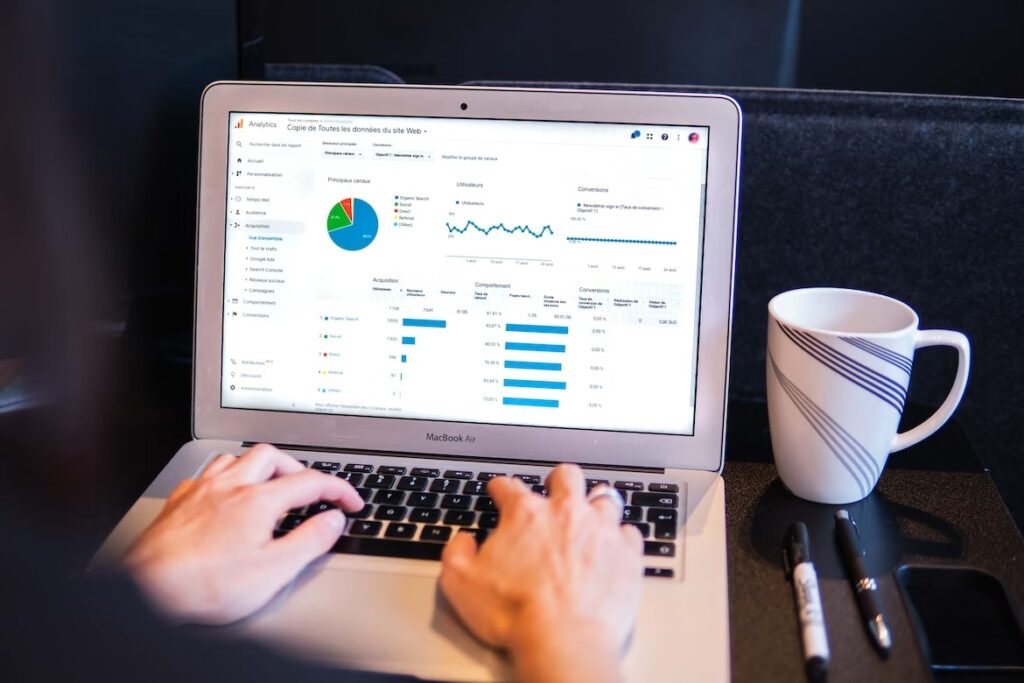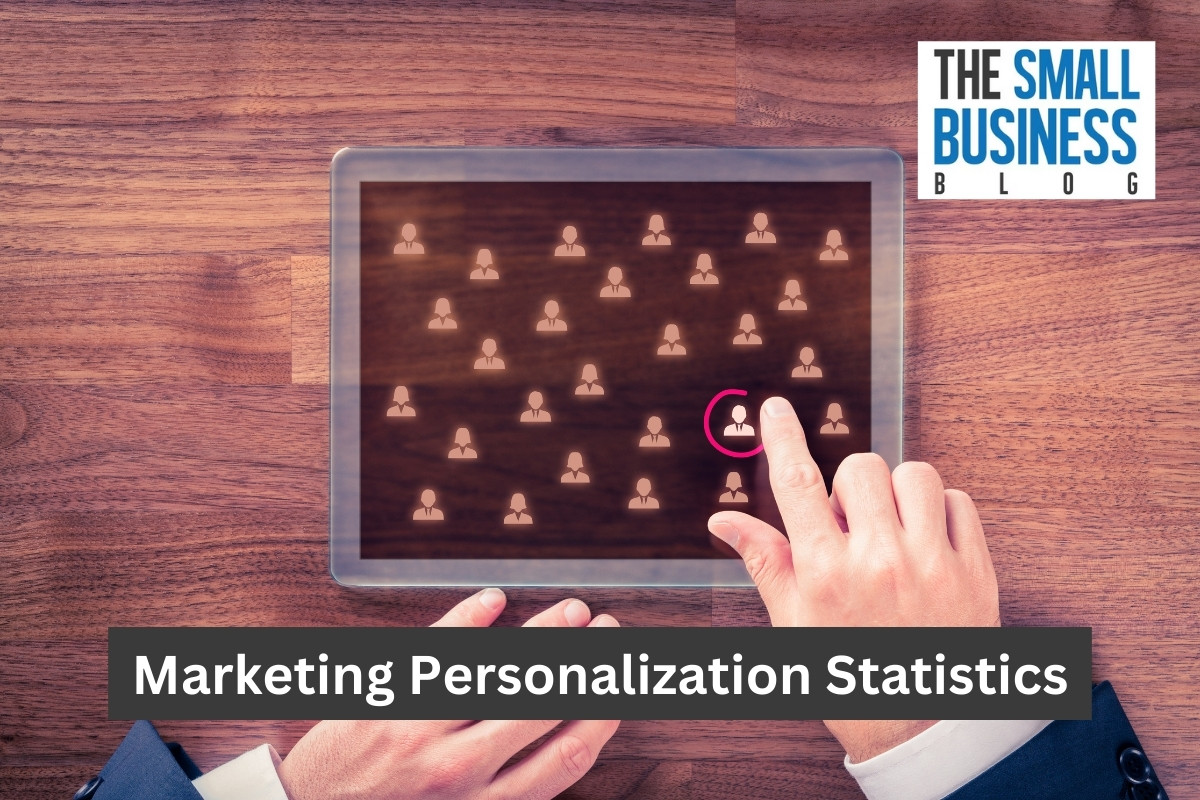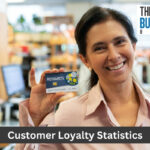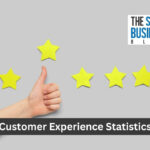If you want to experience more successful marketing results, personalization is key.
If you have a business, this is one of the most essential factors to include in your marketing strategy.
The following marketing personalization statistics for 2024 will show you the efficacy of marketing personalization and give you some insights on how to implement personalization.
One of the things we discovered in our research of marketing personalization is that this ideal is likely to become the norm for most businesses.
These facts and stats can give you an edge over your competition or will at least help you boost your marketing ROI.
In this article, you will learn that well over three-quarters of businesses are using personalization in their marketing strategies.
The results have boosted their customer experience quality, which means they are winning.
Likewise, over three-fifths of consumers expect a personalized experience from their favorite brands. The personalized experience creates loyal customers.
Post Contents
- 1 Key Statistics
- 2 General Marketing Personalization Statistics in 2024
- 2.1 1. A Wakefield Research Study Revealed that 81% of The American Population Feels They Have Little to No Control Over Their Personal Data.
- 2.2 2. In 2022, A Survey Among Consumers Revealed that 62% Said They Would Lose Their Loyalty to A Brand without Personalized Experience.
- 2.3 3. In 2021, 72% of Consumers Buying Luxury Items Prioritize Personalization in Their Top List of What They Expect from Brands.
- 2.4 4. 80% of All Consumers Are Fine with Sharing Their Personal Data for Loyalty Program Memberships.
- 2.5 5. 2022 Salesforce Insights from Almost 17,000 Consumers and Business Buyers 66% of Consumers Feel They Are Treated More Like Numbers than People.
- 2.6 6. In 2021, a TWILIO Segment Survey Revealed that 40% of Consumers Wish that Brands Knew More About Their Personal Style Preferences.
- 2.7 7. A HubSpot Analysis of Over 330,000 CTAs Showed that Personalized CTAs Can Convert 220% Better.
- 2.8 8. 52% of Consumers Say They Enjoy More Satisfaction from A Personalized Digital Experience Offered by Brands.
- 2.9 9. Epsilon Research Shows that 80% of Consumers View Personalization as A Standard Ideal.
- 2.10 10. 63% of Consumers Say that They Would Stop Buying from Brands Using Feeble Personalization Approaches.
- 3 Marketing Personalized Statistics in Business and Marketing
- 3.1 11. As of 2020, 74% of Websites Are Using Personalized Marketing Strategies.
- 3.2 12. Companies that Are Excelling at Marketing Personalization Are Generating 40% More Revenue than Companies Using Average Personalization.
- 3.3 13. 2022 Deloitte Insights Revealed that 75% of Executives Claim They Will Be Investing More in Hybrid Experiences Over the Year.
- 3.4 14. Globally, the Recommendation Market Share Is Expected to Reach $12 Billion by 2025.
- 3.5 15. In 2021, About One Billion US Dollars Were Invested in Beauty Startups that Offered Personalized Services and Products.
- 3.6 16. A Think with Google Survey Shows that 90% of Marketers Claim that Implementing Personalization Has Vastly Increased Business Profits.
- 3.7 17. According to KIBO Trends, 92% of Online Shoppers Are Influenced by A Personalized Shopping Cart with Recommendations.
- 3.8 18. Gen Z Accounts for 74% of The Personalized Marketing Share of Consumers Most Interested in Personalized Products.
- 3.9 19. Data from SmartHQ Uncovers that 72% of Consumers Respond to Personalized Marketing Messages.
- 3.10 20. When Marketing Personalization Is Effective, Google Data Says that They Are 40% More Apt to Spend More than They Planned.
- 4 Interesting Personalization Statistics
- 4.1 21. 43% of Online Shoppers Will Keep Items in Their Shopping Cart Hoping to Get an Email Discount Code or Coupon.
- 4.2 22. 41% of Consumers Think It’s Creepy to Get a Text from A Retailer or Brand when Walking by A Store.
- 4.3 23. 45% of Consumers Who Got an Email from A Brand or Store Apologizing for A Poor Experience Were Happy to See that Email.
- 4.4 24. Marketing Personalization Can Decrease Acquisition Costs by Up to 50%.
- 4.5 25. A New Report from Evergage Says that 55% of Marketers Claim that Marketing Personalization Does Boost Visitor Engagement and Overall Customer Experience.
- 5 FAQs
- 6 Conclusion
- 7 Sources
Key Statistics
- In 2022, a survey among consumers revealed that 62% said they would lose their loyalty to a brand without personalized experience.
- In 2021, 72% of consumers buying luxury items prioritize personalization in their top list of what they expect from brands.
- 80% of all consumers are fine with sharing their personal data for loyalty program memberships.
- In 2021, a TWILIO Segment survey revealed that 40% of consumers wish that brands knew more about their personal style preferences.
- A HubSpot analysis of over 330,000 CTAs showed that personalized CTAs can convert 220% better.
- 52% of consumers say they enjoy more satisfaction from a personalized digital experience offered by brands.
- Epsilon Research shows that 80% of consumers view personalization as a standard ideal.
- 63% of consumers say that they would stop buying from brands using feeble personalization approaches.
- As of 2020, 74% of websites are using personalized marketing strategies.
- 2022 Deloitte Insights revealed that 75% of executives claim they will be investing more in hybrid experiences over the year.
General Marketing Personalization Statistics in 2024

1. A Wakefield Research Study Revealed that 81% of The American Population Feels They Have Little to No Control Over Their Personal Data.
Even though consumers are willing to share their own personal information with brands and businesses online, most feel they have little to no control over their data after sharing it.
According to the Wakefield study, 81% of respondents believe that they have lost control over their personal data.
Another 86% believe that brands and businesses request too much personal data for the tangible advantages they offer.
Roughly two out of three Americans think that threats to their personal data grow faster than brands and organizations can manage.
This does not mean consumers don’t want a personalized experience, because they do.
It means they want to have more control over their personal data and more accountability to avoid threats.
This is something to keep in mind when you’re personalizing your marketing campaigns.
(PR Newswire Wakefield Research)
2. In 2022, A Survey Among Consumers Revealed that 62% Said They Would Lose Their Loyalty to A Brand without Personalized Experience.
In contrast to what the first personalization statistic revealed, 62% of consumers claimed they would stop being loyal to a brand if they failed to use personalization.
This study was performed among consumers who had made online purchases over the previous six months.
Only one year before this, the share of consumers who said they would lose their brand loyalty if a company were to stop personalizing their experience was 45%.
Therefore, there was a growth of 17% more consumers who felt this way.
This tells us that marketing personalization is becoming normalized, and even expected by modern consumers.
This data is in the wake of those who feel when they share their personal data, they still have concerns about safety and privacy.
Do you think that there is a fine balance between wanting personalized experiences and wanting to have control over personal data?
(Statista 2022 Brand Loyalty Survey)
3. In 2021, 72% of Consumers Buying Luxury Items Prioritize Personalization in Their Top List of What They Expect from Brands.
Consumers who engage in the luxury brands segment prioritize personalization when interacting with these brands.
In fact, a whopping 72% said as much in a survey conducted by and reported in the 8th Edition of True-Luxury Global Consumer Insights June 2021.
Among these same consumers, 39% expect or want personalized in-store experiences because they consider that the most key factor of in-person shopping.
Consequently, 26% of these luxury consumers say they targeted and personalized recommendations are the most important aspect of online digital shopping.
These statistics are for the global community of luxury brand consumers.
(BCG True-Luxury Global Consumer Insights June 2021)
4. 80% of All Consumers Are Fine with Sharing Their Personal Data for Loyalty Program Memberships.
Even in the wake of data showing that most consumers have big concerns about their personal data and privacy, 80% are amenable to providing their personal data to join a loyalty program.
More data from this Sailthru survey revealed that 70% of consumers are willing to provide their personal data in exchange for special offers and discounts.
Additionally, 71% are more likely to shop with retailers and brands that offer personalized experiences.
Grant it, loyalty programs offer a lot of benefits to consumers with unique offers, discounts, exclusive sales, and events, etc.
This has become a gold standard among retailers as the efficacy of these programs have proven to be beneficial.
Consumers don’t seem to mind trading some of their first-party personal data to get these exclusive and unique offers.
In fact, 53% of consumers are members of at least one loyalty program.
(Retail Customer Experience Sailthru Survey)
5. 2022 Salesforce Insights from Almost 17,000 Consumers and Business Buyers 66% of Consumers Feel They Are Treated More Like Numbers than People.

Let’s face it, people are human beings that expect to be treated as individuals.
It’s no surprise that 66% of human consumers would expect brands and businesses to understand their individual expectations and needs.
Moreover, 68% of consumers expect brands to show empathy, while only 37% say that brands demonstrate empathy.
Empathy is the act of showing one that the feelings of others are understood. Personalization marketing plays a role in empathizing with consumers.
Fewer than half (48%) of consumers say that they trust companies.
Only 27% of consumers say they have a solid understanding of how businesses use their personal information, while 86% say they want to see more transparency.
Retail is in the top three most customer-centric industries.
This sector is third to Healthcare and Travel and Hospitality. At the bottom rung are Manufacturing, Financial Services, and Government.
(Salesforce State of the Connected Customer 5th Edition)
6. In 2021, a TWILIO Segment Survey Revealed that 40% of Consumers Wish that Brands Knew More About Their Personal Style Preferences.
Statistics show how much people want to be known regarding their shopping preferences.
This study showed that 40% of consumers surveyed want brands to know more about their style preferences.
Moreover, 24% said they wanted brands to know more about their household needs.
When it comes to their economic situation, 20% of consumers wish brands knew and understood that about them. Only 14% of respondents said they wished brands knew their goals and dreams.
It’s understandable that more people wish brands knew their style preferences, but fewer want them to know their economic situation and goals and dreams.
People still don’t want too much of their lives being known among brands.
(TWILIO Segment: The State of Personalization 2021)
7. A HubSpot Analysis of Over 330,000 CTAs Showed that Personalized CTAs Can Convert 220% Better.
Jeffrey Vocell, one of HubSpot’s Senior Managers of Product Marketing, analyzed over 330,000 call-to-actions, checking basic, multivariate, and smart CTAs.
His conclusion is that personalized CTAs are converting 202% better than the default CTAs.
Personalized CTAs, also referred to as “Smart CTAs”, are outperforming other CTAs because they include content that “speaks” to their target audience, but that also reflects their level of knowledge and interest on the topic, or niche.
Would you prefer to personalize your CTAs for landing pages and other webpages for a bigger ROI?
(HubSpot Blog Personalized CTAs)
8. 52% of Consumers Say They Enjoy More Satisfaction from A Personalized Digital Experience Offered by Brands.
More data from the TWILIO Segment report disclosed that 52% of consumers claimed an increase in satisfaction when they get more personalized digital experiences from businesses and brands.
The idea of personalized marketing experiences is becoming more widely used but is still not utilized enough by brands and businesses.
With more than half of consumers preferring the personalized digital experience, it seems more brands would get on board.
Once again, we are reminded that people are individuals who desire to be catered to and have things tailored to them.
(TWILIO Segment: The State of Personalization 2021, The Wise Marketer: Personalization is Key to E-commerce Growth.
9. Epsilon Research Shows that 80% of Consumers View Personalization as A Standard Ideal.
Epsilon Research shows that 80% of consumers are more apt to buy from a brand with a personalized, tailored experience than brands that don’t.
In its research report: “The power of me: The impact of personalization on marketing performance”, it shows how brands’ personalization efforts can improve and boost customer relations.
This data was taken from 2018, but it shows the power of personalization going forward.
In fact, from a 2017 survey of 1,000 consumers from 18 to 64 years old, personalization is very appealing.
Enough for 80% to say they are more apt to engage and make purchases from brands who engage in personalization,
Additionally, 90% of consumers said they find personalized experiences appealing.
These are not statistics to bypass.
(Epsilon Research: The power of me)
10. 63% of Consumers Say that They Would Stop Buying from Brands Using Feeble Personalization Approaches.

According to Smart Insights, personalized marketing is centered around providing a better customer/user experience.
They do so by offering relevant content, targeted messages, and other content that is based on specific customers’ buying behavior and activity.
To that end, 63% of consumers in a survey said they would stop buying from brands all together if they used poor personalization tactics.
This should be easy enough to understand by brands since the idea of personalization is designed to connect, not reject consumers.
This is the kind of data you need to start considering and using more sophisticated, consumer-centric, and digital marketing personalized marketing strategies.
(Smart Insights Personalized Marketing)
Marketing Personalized Statistics in Business and Marketing
Now that you have plenty of general statistics and information regarding marketing personalization, we will focus this section on its role in branding your business.
We already know that consumers prefer personalized experiences from brands over non-personalized experiences.
11. As of 2020, 74% of Websites Are Using Personalized Marketing Strategies.
The higher adoption rate for marketing personalization strategies is reportedly due to the pandemic.
It was only after the global pandemic started that we now have 74% of websites implementing personalized experiences.
That’s not to say we would have seen growth in marketing personalization anyway.
The growth may not have been as fast or as prevalent as it is today without the pandemic, but these are things we cannot know for sure.
Yieldify’s blog shows the changes in E-commerce personalization trends post the COVID-19 pandemic.
One of the changes came in the form of more websites using personalization, which website personalization statistics show that it now accounts for 74% of websites.
Another grand benefit is that since personalization has grown, customer retention (58%) overtook conversions (55%) and acquisitions (45%) as the main goal for personalization of websites.
(Yieldify E-commerce After COVID-19)
12. Companies that Are Excelling at Marketing Personalization Are Generating 40% More Revenue than Companies Using Average Personalization.
McKinsey & Company research has shown that companies that are winning at personalization are also earning 40% more revenue over their average counterparts.
Therefore, marketing personalization done right makes a significant difference in how much revenue a company can generate.
The leaders in marketing personalization are companies that are tailoring their outreach and offerings to targeted individuals who are most likely to want the offers.
Also, they are not sitting on offers, but instead, they are getting the offers out at the right moments using the right experiences for those specific customers.
Personalization strategies used the right way go a long way to improving and boosting customer relations.
When your customer relations are good, your loyal customer base will grow, resulting in better revenues.
Since the pandemic, loyalty is essentially “up for grabs”, according to the McKinsey & Company report.
(McKinsey & Company: The value of getting personalization)
13. 2022 Deloitte Insights Revealed that 75% of Executives Claim They Will Be Investing More in Hybrid Experiences Over the Year.
Since this is a 2022 trend report, the idea of 75% of executives plaining to invest more in the hybrid experience over the year means into 2023.
Of the one thousand executives surveyed, 43% said they will be investing more in the hybrid experience to increase the personalization of services and products and to keep their products innovative.
Likewise, 40% said it’s to keep people feeling connected and 38% said it’s for offering more inclusive experiences.
Consider the fact that virtually overnight, our lives went from in-store shopping experiences to online/digital shopping experiences in 2020.
That’s one of the reasons executives are ready to invest more in hybrid (in-store and online) personalization.
(Deloitte Insights: 2022 Global Marketing Trends)
14. Globally, the Recommendation Market Share Is Expected to Reach $12 Billion by 2025.
One of the elements involved in marketing personalization is recommendation.
It’s no surprise that this market size is forecast to achieve $12 billion in just a couple of years.
A recommendation engine is a data filtering tool that uses machine learning to help with recommendations based on customer/consumer activities and behaviors.
In other words, it finds patterns.
According to data from IndustryArc, the market was valued at over one billion dollars in 2018.
Due to the expanding and massive growth of the recommendation engine market, it’s set for significant growth in the coming three to five years.
(IndustryArc Recommendation Engine Market Growth)
15. In 2021, About One Billion US Dollars Were Invested in Beauty Startups that Offered Personalized Services and Products.

Personalized beauty products isn’t anything new, but it has expanded since the digital personalization ideal because popular.
In fact, this data about one billion in US dollars getting invested in companies that offered personalized product and services makes 2021 the biggest year on record (so far) for personalized beauty brands.
Beauty brand startups raised $1.04 billion (USD) in 2021, which was almost 50% more than the former record high of $710 million (USD) in 2017.
Ming Zhao, Co-founder and CEO of Proven said, “You’re asking me what the total addressable market is.
It is as large as the overall skin care, beauty, wellness, and personal care markets are.
It’s all going to be personalized, and it should have been already.”
(Retail Dive Personalized Beauty Brands)
16. A Think with Google Survey Shows that 90% of Marketers Claim that Implementing Personalization Has Vastly Increased Business Profits.
Think with Google conducted a survey in North America that included companies with more than $250 million in revenues in March 2017.
These leading marketers claimed that personalization contributed a lot to business profitability.
There are still 25% of businesses that aren’t using any form of personalization in marketing or customer relations.
Even with overwhelming data that shows today’s consumers from 18 to 64 years old positively respond and react to marketing personalization.
It’s not just about personalizing products. It’s also about personalizing their experiences online and offline.
(Think with Google Marketing Personalization Statistics)
17. According to KIBO Trends, 92% of Online Shoppers Are Influenced by A Personalized Shopping Cart with Recommendations.
Even an online shopping cart is a marketing tool that should be added to your strategy.
Consider that a whopping 92% of online shoppers are influenced by recommendations in a personalized shopping cart experience.
Likewise, having a personalized homepage with promotions are known to have influenced 85% of online consumers to make a purchase.
Kibo also shows that 76% of consumers check out competitors.
Finally, this KIBO 2017 report claims that 68% of consumers want to find the lowest price possible when shopping.
This fits well into marketing personalization from top to bottom.
(KIBO Consumer Trends Personalization)
18. Gen Z Accounts for 74% of The Personalized Marketing Share of Consumers Most Interested in Personalized Products.
Gen Z is growing up and becoming part of the consumer market regularly buying products and services online and offline.
So, it’s no surprise that businesses should be and are marketing directly to them.
In fact, Salesforce’s 2020 4th edition of “State of the Connected Customer” reveals that 74% of Gen Z customers are most interested in getting personalized products.
Compare this data with 67% of Millennials, 61% of Gen X, and 57% of Baby Boomers.
Statistics show a wide range of consumers who are interested in personalized experiences and products.
(Salesforce State of the Connected Customer 4th Edition)
19. Data from SmartHQ Uncovers that 72% of Consumers Respond to Personalized Marketing Messages.
If you’re a marketer and you want consumers to respond to your messages, personalize them because 72% of them respond to that personal touch.
These consumers respond to specific personalized marketing messages that include exclusive offers that fit their interests.
It’s important to ensure you’re crafting your offers when personalizing your marketing messages.
This includes email messages and other forms of digital marketing messages.
(OneTouchPoint Leverage Personalized Marketing)
20. When Marketing Personalization Is Effective, Google Data Says that They Are 40% More Apt to Spend More than They Planned.

The ideal of retail personalization is a grand marketing tool that encourages more consumers to add items to their cart and spend more than originally planned.
In fact, a Think with Google study showed that customers said that they are 40% more apt to spend more than they planned when their experience is highly personalized.
Additionally, consumers surveyed said that they are twice as apt to add items to their cart when the personalization experience is right.
The retail industry is already a highly personalized market space, but with highly personalized marketing as part of the whole package, retailers can tap into a larger audience and generate more revenue.
(Think with Google the Right Personalization)
Interesting Personalization Statistics
You should be getting a good idea of how crucial marketing personalization is from all these statistics.
This section will include some of the most interesting statistics in our opinion.
21. 43% of Online Shoppers Will Keep Items in Their Shopping Cart Hoping to Get an Email Discount Code or Coupon.
According to research from Dynamic Yield, 43% of consumers will leave their items in their cart anticipating a forthcoming email discount.
We found this little tidbit interesting. We hope you think it is as well.
Dynamic Yield put these consumers in a category they called “Offer Hackers”, which we also found interesting.
We had never heard of this tactic, have you?
(Dynamic Yield: The State of Personalization in Email)
22. 41% of Consumers Think It’s Creepy to Get a Text from A Retailer or Brand when Walking by A Store.
It seems that marketing personalization can seem creepy to consumers when it’s too “personal”.
The 2018 Accenture Pulse Check revealed that 41% of consumers said that it’s creepy to get text from a brand or a retailer as they walk by or enter a store.
This same research study showed that 35% of consumers who use social media say it’s creepy to see ads on their social sites after they have been browsing on brand websites.
This is all part of getting to know your customer and today’s consumers. Keep it cool and don’t be creepy.
We’re pretty sure this hasn’t changed much since 2018 unless it’s thought to be creepier.
Messages sent via email, text, mobile notification, or messenger are included.
(Accenture Personalization Pulse Check 2018)
23. 45% of Consumers Who Got an Email from A Brand or Store Apologizing for A Poor Experience Were Happy to See that Email.
While getting an email or social media ads related to what you’re shopping for online or in the store is creepy.
Apologizing for a poor experience via email or brand website message is cool.
This is called personalized engagement and it builds trust. Yes, even this is considered marketing personalization.
45% of consumers thought it was great to get an email apology after a poor online or in-store experience, while 41% were impressed by getting an apology via the brand website.
(Accenture Personalization Pulse Check 2018 Making It Personal)
24. Marketing Personalization Can Decrease Acquisition Costs by Up to 50%.
You may not know that personalization helps you save on acquisition costs by up to 50%, according to McKinsey Digital.
They say that personalization will drive growth, but personalization also needs to be scaled.
When personalization is used properly, it can decrease your acquisition costs by up to 50%.
The report also states that it raised revenues by up to 15%, while increasing your marketing efficacy in spend by between 10% and 30%
(McKinsey Digital: Marketing’s Holy Grail)
25. A New Report from Evergage Says that 55% of Marketers Claim that Marketing Personalization Does Boost Visitor Engagement and Overall Customer Experience.

Customers don’t appreciate being just a number to brands and businesses these days.
Employing personal touch engagements are necessary to gain, retain, and create loyal customers.
Almost all marketers (98%) agree that marketing personalization has a positive effect on customer relations.
The Evergage data shows that there are three principal areas where marketers are seeing the benefits of personalization.
- 55% say it boosts visitor engagement
- 55% claim that it enhances customer experiences
- 51% report higher conversion rates
We expect to see more brands and companies engaging in more marketing personalization in 2023 and beyond.
(PR Newswire Evergage Study Highlights)
FAQs
Why Is Marketing Personalization so Important?
Personalization is a mainstream ideal for all businesses and brands.
However, marketing personalization helps businesses to keep their existing customer base happy while building trust among their target audiences.
It helps them to stay relevant across demographics.
What’s Involved in Marketing Personalization?
This is a long and complicated idea, but we have a short and succinct answer for you.
Essentially, marketing personalization appeals to a specific audience whether you’re using paid ads, text messages, social media, email, landing pages, etc.
It’s a group of steps marketers take after research to know their audiences. Whatever you do, it’s all about the customer.
Are There Many Challenges Involved with Marketing Personalization?
Marketers have mentioned their top challenges related to personalized marketing.
Here are the top five in order of the challenging nature.
1. 42% of marketers say it’s the lack of ability to track targeted customers throughout the marketing journey.
2. 35% of marketers state that it’s challenging to connect marketing performance to unique campaigns, channels, or programs.
3. 32% of marketers say that it’s difficult to have a single view of customers across marketing channels.
4. 26% of marketers claim that it’s hard to manage data quality while inconsistent levels of quality exist.
5. 26% of marketers also claim that technological resources are lacking.
As technology evolves, these challenges along with the others may be resolved.
Conclusion
Now you have a good overview of how marketing personalization works and why it’s used by top marketers.
If you haven’t started using personalization in your marketing, have these statistics helped you decide to implement or test it?
The personalized marketing segment comes with many benefits which include improving customer relations, boosting customer trust and loyalty, enhancing the customer experience, and offering the best recommendations for specific consumers with distinct buying behaviors.
Do you feel that you have learned something new about utilizing personalized marketing strategies in your business?
If so, we hope you will learn more and become more successful than you expected.
We strive to provide you with the best, most accurate, and latest studies and data available.
So, we hope we have answered your questions and concerns about using personalization in your marketing strategies.
We hope you have enjoyed reading this article about personalized marketing statistics in 2024.






























